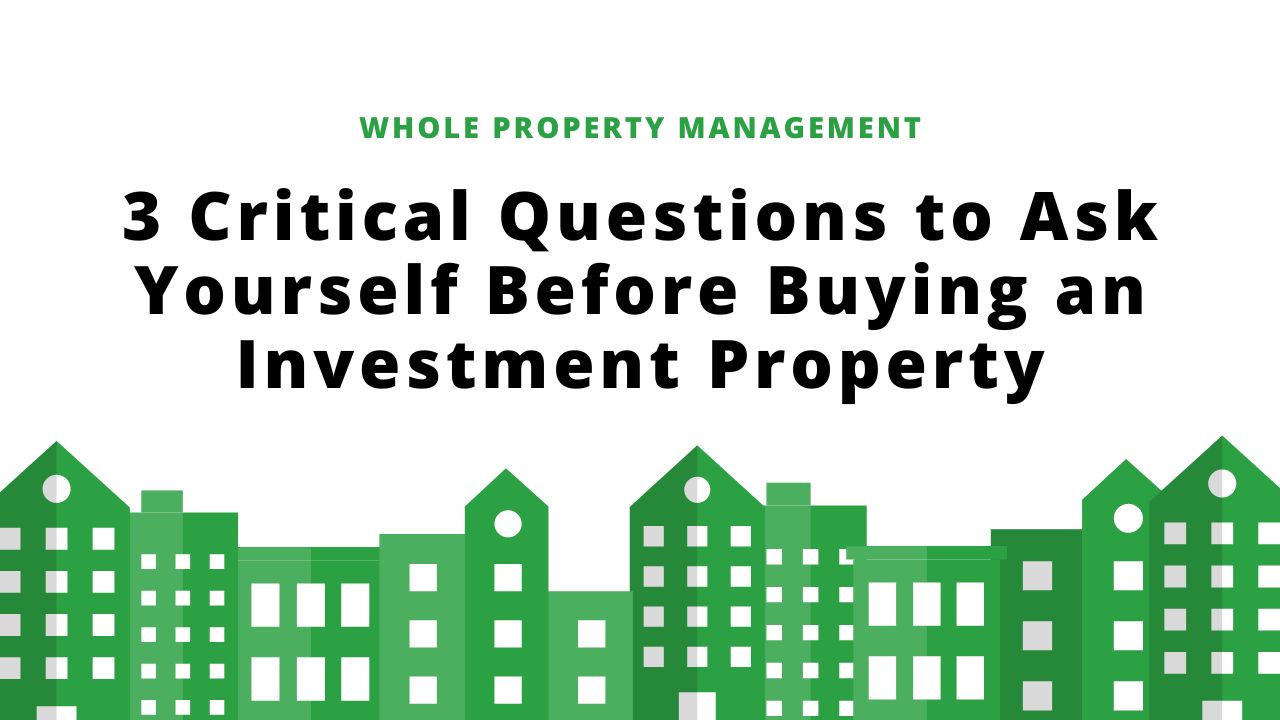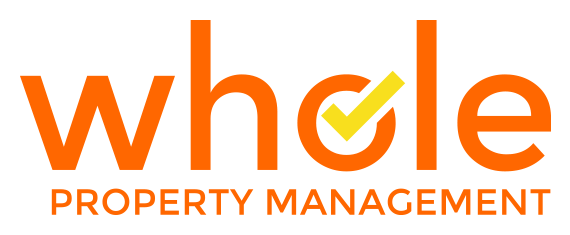3 Critical Questions to Ask Yourself Before Buying an Investment Property

Investing in property can be profitable, but it’s not as simple as purchasing the first home that catches your eye. For landlords, buying an investment property requires careful planning and a deep understanding of both the market and personal goals.
Before you dive in, it’s crucial to ask yourself these critical questions that will help you make the most informed decision and avoid vacancies:
1. What Is My Investment Goal?
The first and arguably the most important question you should ask yourself is: “What do I want to achieve with this investment?” Understanding your investment goal will influence nearly every decision you make, from the type of property you buy to the location and financing options you choose.
Some common investment goals include:
- Cash flow: You want your property to generate monthly income through rent. This is especially important if you rely on that income to cover the mortgage and other property-related expenses. In this case, you’ll want to focus on properties with a high rental yield and located in areas where tenants are in demand.
- Capital appreciation: You’re in it for long-term gains. Your primary goal is to purchase a property that will increase in value over time. This might mean you focus less on immediate cash flow and more on properties located in areas with the potential for significant price appreciation.

- Tax benefits: Some investors look for properties that provide specific tax advantages, like depreciation or deductions for interest and expenses.
- Diversification: Perhaps you already have a well-balanced financed and investment portfolio and are looking to diversify by adding real estate. Your focus might be on acquiring a stable asset that doesn’t necessarily offer huge returns but provides steady, reliable income.
Your investment goal will guide you through the entire process. For example, if you’re focused on cash flow, a property in a growing suburban area with a low vacancy rate may be a good fit. On the other hand, if you’re more interested in capital appreciation, an up-and-coming neighborhood in a major city might be more appealing.
Key Takeaway: Be crystal clear about what you want from your investment. Your goals will dictate the type of property you buy, where you buy it, and how you manage it.
2. Can I Afford This Investment Property?
Even the best-laid investment plans can fail if your finances aren’t in order. Before buying an investment property, you need to assess your current financial situation and determine whether you can afford not just the initial purchase but the ongoing expenses as well.

Here are some financial aspects to consider:
- Down payment: Investment properties typically require a larger down payment than primary residences, which typically starts at 20% or more.
- Mortgage payments: Lenders view investment properties as riskier, so interest rates tend to be higher. Calculate your potential mortgage payments and ensure they align with your expected rental income.
- Ongoing costs: In addition to the mortgage, you’ll need to budget for property taxes, insurance, and maintenance costs. Are you prepared to handle these expenses without relying entirely on rental income? Keep in mind that there will likely be times when your property is vacant.
- Unexpected expenses: Properties need repairs and upkeep, and sometimes these can come at the worst times. Whether it’s a leaky roof or a broken air conditioner, unexpected expenses can drain your finances quickly. A good rule of thumb is to set aside 1-2% of the property’s value each year for maintenance.
It’s important to have a solid understanding of how much rental income you can realistically expect to earn. Research the local market, check rental listings for similar properties, and consider working with a property management company that can provide expert advice on rental prices.
Key Takeaway: Understand the full financial picture before making a purchase. Make sure you’re financially prepared to handle both the upfront and ongoing costs of owning an investment property.
3. Do I Have the Time and Expertise to Manage The Property?
Being a landlord is not a passive role. It requires time, effort, and expertise. From finding and screening tenants to handling maintenance requests and collecting rent, managing a rental property can be a full-time job in itself. So, ask yourself: Do I have the time and expertise to manage this investment property effectively?

Here are a few management tasks you’ll need to consider:
- Tenant management: Finding reliable tenants is crucial to the success of your investment. This involves advertising the property, screening potential tenants, and managing leases. You must have the time and know-how to handle the process.
- Maintenance and repairs: From small fixes to major repairs, owning a rental property comes with its fair share of emergent and non-emergent maintenance responsibilities. If you’re handy, you might be able to handle some repairs yourself, but major issues will require professional help.
- Legal obligations: Landlords are subject to various laws and regulations, from fair housing rules to building codes and eviction procedures. You must be familiar with the legal aspects of being a landlord.
- Time commitment: Managing a rental property can be time-consuming. You need to have disposable time to manage your rental.
For many landlords, the solution is to work with a professional property management company. A good property management company can handle everything from tenant placement to maintenance and legal compliance, allowing you to focus on the bigger picture of growing your investment portfolio.
Key Takeaway: Don’t underestimate the time and expertise required to manage a rental property. If you’re not prepared to take on the role of landlord, consider hiring a property management company to help you.
Conclusion
Buying an investment property is a major decision that comes with both risks and rewards. By asking yourself these three critical questions, you’ll be better equipped to make a smart, informed choice.
At the end of the day, a property management company can be your greatest asset. Whether you’re new to real estate investing or already consider yourself a seasoned landlord, working with a professional property management company can help you get the best out of property ownership, reduce stress, and maximize your returns.
Reach out to Whole Property Management to help you make the right decision!
